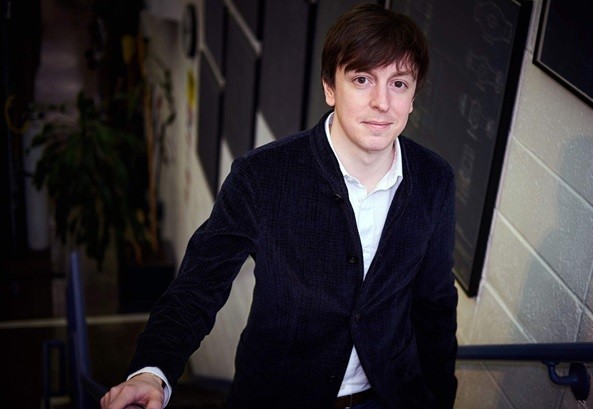Giometto, assistant professor of civil engineering and engineering mechanics at Columbia Engineering, has received a Physical & Dynamic Meteorology Award from the National Science Foundation. Giometto’s project focuses on developing a new machine-learning model to tackle the challenge of enabling accurate characterization of surface-atmosphere exchange. With more than 70% of Earth's land surface in complex terrain, this advancement promises substantial benefits for applications such as weather forecasting, wildfire control, aviation, and military operations.
In his project, Giometto introduces a novel physics-informed and data-driven model for accurate estimation of surface momentum and sensible heat fluxes in complex terrain, which encompasses mountainous regions and urban areas. The approach enhances traditional physics-based methods, which are effective primarily over flat and homogeneous surfaces, by effectively capturing the impact of terrain heterogeneity onto surface fluxes. The proposed formulation is also expected to enable a more straightforward and physically justified assimilation of sparse observations for parameter estimation. Further, the model's flexibility allows easy extension to capture additional flow phenomena, making it a versatile tool compared to classical physics-based models.
This project holds implications across various fields, particularly in reducing uncertainties in surface fluxes, which significantly impact the predictive abilities of numerical weather forecasting and climate projection models. The integration of data-driven and physics-based approaches offers interdisciplinary opportunities for students. Findings from the project will be incorporated into a dedicated graduate-level module, and broader participation in science will be promoted by actively recruiting students from underrepresented groups through established Columbia outreach programs.
To advance this important research, Giometto has been granted $523,860 over 3 years for his project. This award aligns with the broader mission of PDM and the Division of Atmospheric and Geospace Sciences, aiming to push the intellectual frontiers of atmospheric and geospace sciences. The investment prioritizes fundamental research, technology development, and education that enable discoveries, nurture a vibrant, diverse scientific workforce, and help attain a prosperous and sustainable future.

